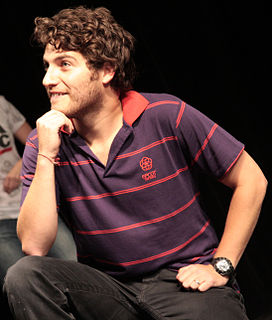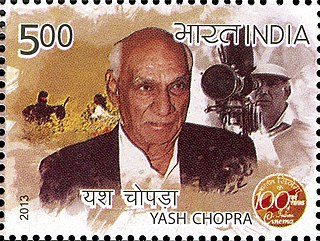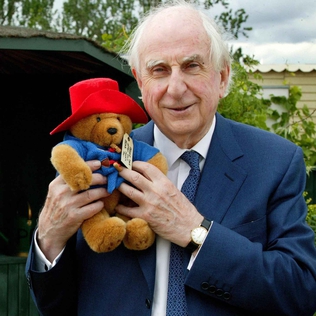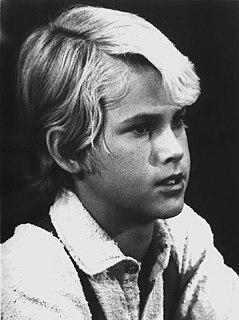Top 74 Cameraman Quotes & Sayings - Page 2
Explore popular Cameraman quotes.
Last updated on April 21, 2025.
It took me three, four years, to get from my first film to my second film, banging on doors, trying to get people to give me a chance. Writing, struggling, with no money in the bank, working as an editor on the side. Working as a cameraman on the side. Getting little jobs, eking out a living. Trying to stay alive, and pushing a script that nobody wanted.
The Russo brothers are the best people ever, and they cast me in 'Happy Endings.' I did text Joe Russo to say, 'I don't think my character dies, so if you need a local news cameraman to show up in 'Captain America 2'... I know it doesn't make sense, but just hear me out on this!' He was really cool about it and turned me down right away.
There's a difference between ad-libbing and improvising. And there's a difference between not knowing what to do and just saying something. Or making choices as an actor. As a writer also, as a person who's making a film, as a cameraman, everything is a choice. And it seems to me I don't really have to direct anyone or write down that somebody's getting drunk; all I have to do is say that there's a bottle there and put a bottle there and then they're going to get drunk.
A lot of the good cameraman who we used are doing television work; they're doing commercials for a lot of money. And the commercials look incredible. But what's it about? I made three major commercial campaigns. I enjoyed it, I experimented with it, and at the end of the day I felt no satisfaction. It was like having a fast food lunch.
It's true that I don't think I'd be a good director. If I were a director, I'd try to hire the best people I could and then leave them alone. I don't know much about cameras or lighting, so I'd make sure that I had a really good cameraman who understood lenses and lighting, and I say to him, "This is the scene we have to shoot and this is what I think it should be, you go do it." Same with actors. But really, very good directors who know everything do basically the same thing. They hire you and then they leave you alone.
David Fincher is probably the best comprehensive director in terms of being a manger of a process that must drive forward. He has such confident command of cinema language and visual language and script and performance. He knows more about f-stops than any cameraman, he knows more about lighting than any gaffer, he is a wonderful writer, and he can give you a good line reading. Under pressure, he is the kind of guy who you will just dive in with and trust and follow because his vision is so intense.
It's so easy to disappear into your character because there isn't all this fuss around you, and we keep a closed set, and closed off to all crew members, even, unless we're cut. A lot of times, you're doing a scene in a movie and there are literally 35 people standing behind the camera all waiting to do their job, but here they have to be off the stage. On The Office, it is very much just the actors, a cameraman and a boom operator, like a real documentary, like we really are being documented.
Of course, it may be that the arts of writing and photography are antithetical. The hope and aim of a word-handler is that he maycommunicate a thought or an impression to his reader without the reader's realizing that he has been dragged through a series of hazardous or grotesque syntactical situations. In photography the goal seems to be to prove beyond a doubt that the cameraman, in his great moment of creation, was either hanging by his heels from the rafters or was wedged under the floor with his lens in a knothole.
My technicians are my most important tools. Once I establish a rapport with them, then they would understand me in my next film. I wouldn't have to train anyone new. I give a lot of respect to all my technicians, because I'm a technician too. I wouldn't be able to convey a feeling if the writer didn't write it well, and the cameraman didn't shoot it well.
I worked on 'Blue Peter' and 'Tonight' and lots of TV plays, filmed people like Rudolf Nureyev and Ted Heath, and ended up a senior cameraman with my own crew. I'd had my first short story published in 1947, and when my writing really started to take off I decided to go freelance, and eventually left the BBC in 1965.
I grew up on the sets of Bonanza and most of my (childhood) memory is (on the set of) Little House. I was actually an assistant cameraman on Highway to Heaven. So, I observed my father working for many years. He was a very giving person. I really respected the way he ran his sets. He never treated anyone differently - whether you were the guest star of the show or the grip. Everybody was treated with respect.
I think of the medium as a people-to-people medium, not cameraman-to-people, not direction-to-people, not writers-to-people, but people-to-peopleYou can only involve an audience with people. You can't involve them with gimmicks, with sunsets, with hand-held cameras, zoom shots, or anything else. They couldn't care less about those things. But you give them something to worry about, some person they can worry about, and care about, and you've got them, you've got them involved.













